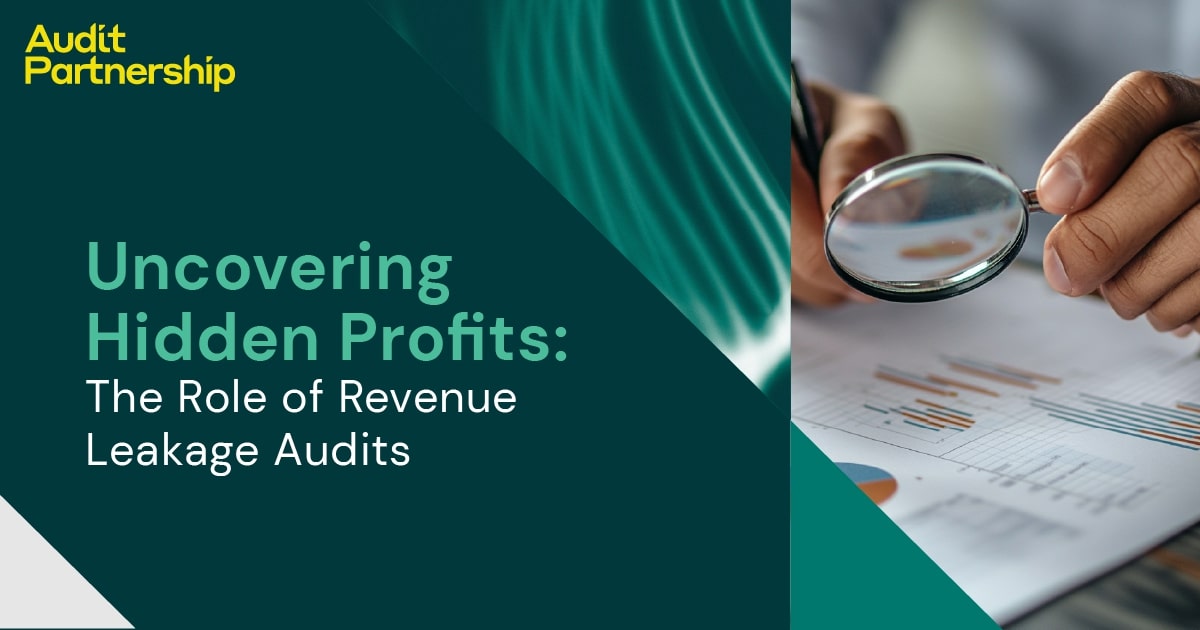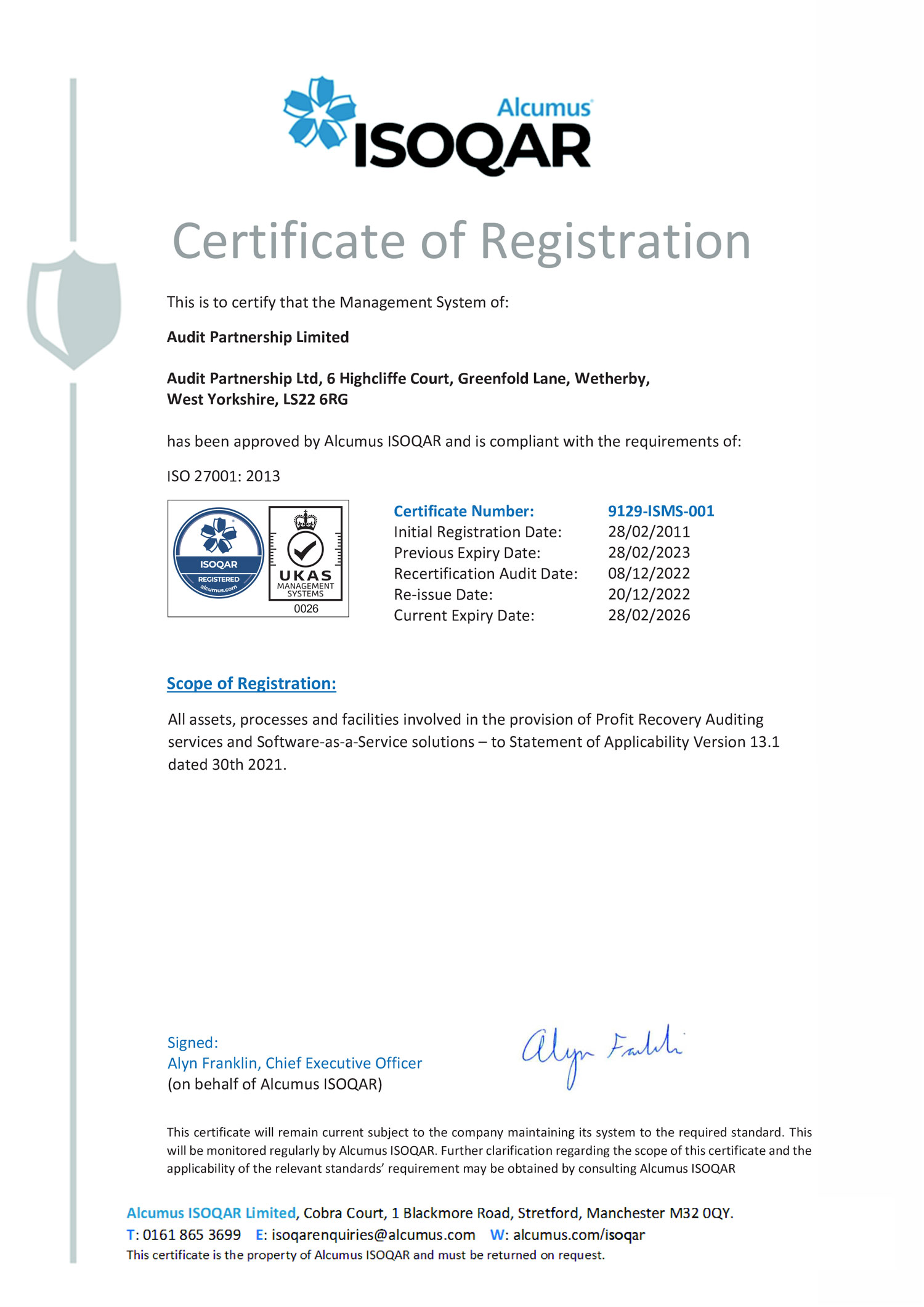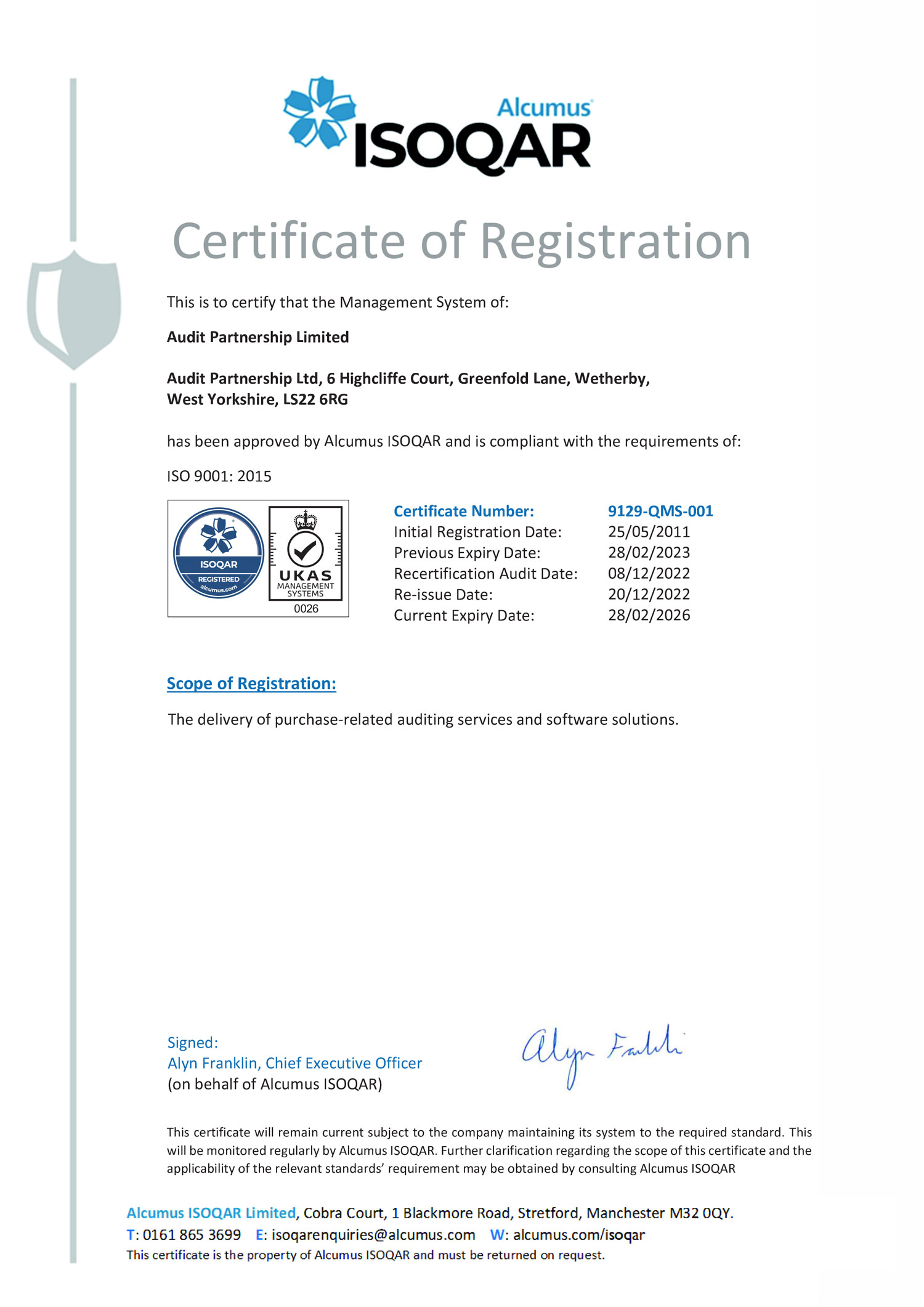
In the business environment, uncovering hidden profits through revenue leakage audits is vital for organisations looking to optimise their financial performance. This blog explores the role of revenue leakage audits, how it occurs, addressing these leaks, and the benefits of implementing a robust audit strategy.
Key Features
- Definition of revenue leakage and its significance.
- Common causes and scenarios leading to revenue leakage.
- How recovery audits can effectively identify and mitigate revenue leakage.
- Benefits of conducting these audits.
- How Audit Partnership assists organisations with revenue leakage audits.
- Strategies for overcoming revenue leakage.
What is Revenue Leakage?
Revenue leakage refers to the loss of potential income that a business should have generated but is not realised due to inefficiencies, errors, or other issues. This can include overpayments to suppliers, missed discounts, billing inaccuracies, contractual compliance failures, and various forms of financial mismanagement. Essentially, it represents profit that falls through the cracks, often unnoticed until it significantly impacts the bottom line.
How Does Revenue Leakage Occur?
Revenue leakage can occur in various ways, including:
- Billing Errors: Mistakes in invoicing can lead to incorrect charges or prices being applied to clients or suppliers.
- Overpayments: Businesses may pay suppliers more than necessary due to errors in pricing or misconceptions of contractual terms and conditions.
- Missed Discounts: Loss due to misapplied available discounts, reducing the savings a company could have enjoyed.
- Contract Compliance Issues: Non-attachment to contract terms can result in compliance violations that negatively impact revenue generation.
How Recovery Audit Helps with Revenue Leakage
Recovery audits are comprehensive reviews that study financial transactions to help identify and recover lost revenue. By analysing various aspects of the accounts payable and billing processes, recovery audits can:
- Identify Issues: Identify areas of financial leakage, including duplicate payments, invoices, missed discounts, and compliance failures.
- Enhance Visibility: Provide a more precise visual pattern of financial processes and improve the accuracy of financial reporting.
- Support Recovery: Enable organisations to reclaim lost funds through accurate audits and simplified recovery processes.
Benefits of Conducting a Recovery Audit
The benefits of conducting a revenue leakage audit through recovery processes are numerous:
- Improved Financial Health: Recovering lost revenue directly boosts financial performance.
- Improved Workflow: Audits can uncover process inefficiencies, leading to improved workflows and reduced costs.
- Strengthened Supplier Relationships: Managing and correcting disparities to improve supplier communication and trust.
- Enhanced Compliance: Regular audits ensure commitment to contractual agreements, reducing the risk of compliance violations.
- Informed Decision-Making: A detailed study of audit details provides management with the information needed for strategy development and further financial planning.
How Audit Partnership Helps with Revenue Leakage
At Audit Partnership, we specialise in identifying revenue leakage and implementing effective recovery audits tailored to your organisation’s needs. Our advanced methodologies and AI-powered technologies analyse your financial transactions, uncover hidden revenue, and optimise your accounts payable processes. We work closely with your team to reduce inefficiencies, implement best practices, and ensure that every dollar is accounted for.
Overcoming Revenue Leakage
To effectively overcome revenue leakage, organisations can take the following steps:
- Conduct Regular Audits: Execute a consistent audit programme to identify leakage at the earliest opportunity.
- Implement Process Improvement: Review findings and identify areas for process improvement and better controls. Provide training on changes and reinforce the importance of accurate billing and compliance to minimise mistakes and oversights.
- Follow Clear Communication: Try to encourage communication between departments to handle disparities by promoting a culture of responsibility and ownership.
- Review Contracts Regularly: Ensure contract terms and regulations are correct and clear, preventing misunderstandings that could lead to future revenue loss.
Final Thoughts
The role of revenue leakage audits is vital in uncovering hidden profits and maximising a company’s financial health. By understanding revenue leakage, implementing effective recovery audits, and partnering with experts like Audit Partnership, organisations can address compliance issues, enhance operational efficiency, and ultimately improve their operations. Taking a proactive approach to revenue management ensures no profit goes unnoticed, allowing businesses to thrive in an increasingly competitive environment.
Frequently Asked Questions (FAQs) – Role of Revenue Leakage Audits
1. What is the primary purpose of a revenue leakage audit?
The primary purpose of a revenue leakage audit is to identify and recover lost revenue resulting from errors, inefficiencies, and compliance issues within a company’s financial processes.
2. What areas are typically reviewed during a revenue leakage audit?
Audits typically review billing practices, accounts payable transactions, supplier agreements, contract compliance, and internal processes to identify potential revenue leakage.
3. What types of organisations benefit from revenue leakage audits?
Revenue leakage audits can benefit organisations of all sizes across various industries, including retail, manufacturing, telecommunications, and finance, as they often experience complex billing and payment processes.
4. What kind of technology is used in recovery audits?
Recovery audits often utilise data analytics tools, advanced AI-based software, and reporting solutions to analyse financial transactions efficiently and identify discrepancies.














